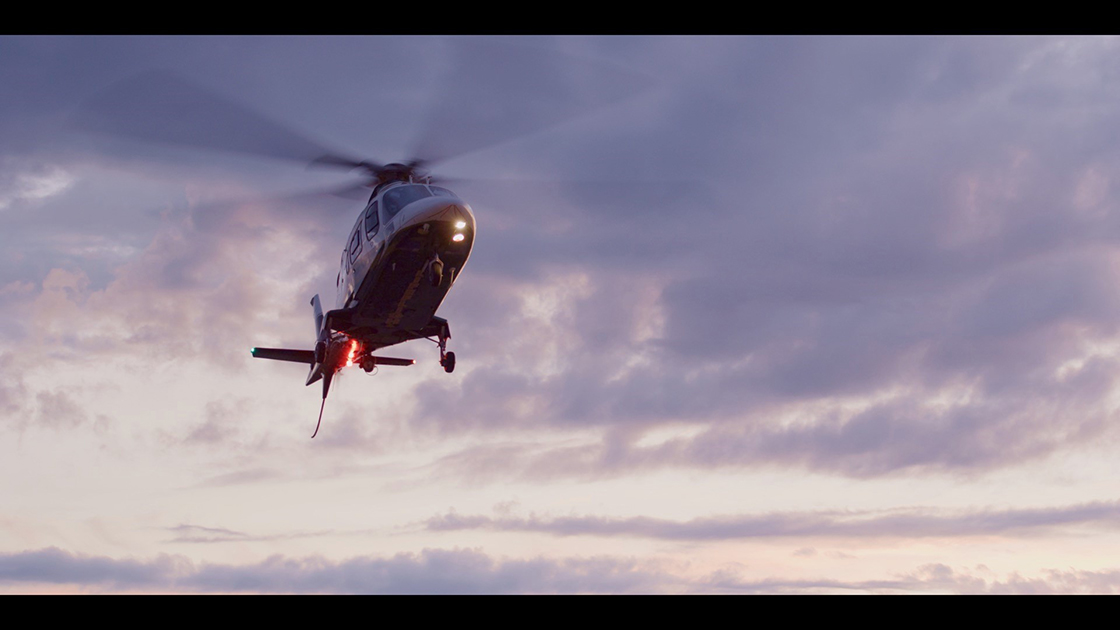09 July 2021
On both sides of the Atlantic Leonardo is at the forefront, in collaboration with operators, specialist partners and certifying authorities, in testing and validating new procedures to enable helicopter missions to be safer, more effective and greener while also making better use of airspace.
Last March ENAV and Leonardo announced the successful completion of tests and validation checks on PBN (Performance Based Navigation) navigation procedures, using an AW169 operated by Alidaunia on the route connecting Foggia with Isole Tremiti - (San Domino) in Apulia. Alidaunia operates emergency medical service (EMS) missions as well as transport services to and from Isole Tremiti. The PBN procedure, which is based on new-generation satellite navigation technology combined with advanced on-board avionics, ensures safer flight operations through more precise and accurate navigation, approach and landing operations (particularly in difficult weather conditions), thus surpassing traditional systems based on radio assistance from ground stations.
The Foggia-Tremiti (Island of San Domino) route is the first step in supporting helicopter operations of the Rete Eliportuale Puglia, the regional helicopter network. The tests successfully carried out using one of our AW169 helicopters were facilitated by a collaboration between Alidaunia and EGSA (the European Global Navigation Satellite Systems Agency) as part of the PHAR project (PBN for Hems in the Apulia Region).
The tests demonstrated that, by using dedicated routes, PBN procedures can also ensure lower fuel consumption and a reduction in the emission of pollutants and noise. The main potential beneficiaries of this technology are passenger transport, emergency medical and rescue services, disaster relief operations, surveillance and fire-fighting - in all weather conditions, day and night. The adoption and implementation of PBN procedures significantly improves flight safety, environmental protection, the flexibility of public services and the effectiveness and responsiveness of air transport through the ability to simultaneously integrate fixed-wing and rotary-wing aircraft operations and through the more efficient use of airspace.
In the United States PBN procedures are now starting to be used on helicopters flying under instrument flight rules (IFR), and - like in Italy - Leonardo is one of the first companies to implement them. Our EMS client LifeFlight of Maine has been working with the US Federal Aviation Administration (FAA) to develop these procedures using a GrandNew.

In 2020 LifeFlight of Maine, in collaboration with the FAA, launched a project for the development of lower-altitude routes. New communications and satellite-based GPS systems enable the FAA's air traffic controllers to provide continuous guidance and control over these new precision routes that link hospitals with remote communities throughout the state of Maine. These particular lower-altitude routes mean that LifeFlight's pilots are able to fly more safely and, given the greater number of options available to them particularly in adverse weather conditions, to increase their operational ability to assist and save more patients.
In the United States these procedures are currently being developed privately, but the LifeFlight of Maine-FAA tests have been validated to support the development of new criteria for the creation of routes and agreements, and also to enable the FAA to implement the new procedures nationwide. In-flight tests on the first route were completed in December 2020, with three additional routes now part of a project aimed at creating a complete network across the entire state of Maine. When all the necessary tests have been completed, the FAA will be able to develop such networks at national level so that they can be extensively used in EMS missions by different operators.
This flight capability for the entire range of Leonardo helicopters means that low-altitude operations can be safely carried out in close proximity to other aircraft, drones included. It also enables higher precision using Satellite Point in Space and ILS systems at airports. Leonardo is currently one of the few manufacturers in the world with the capability to also produce PBN navigation databases.

